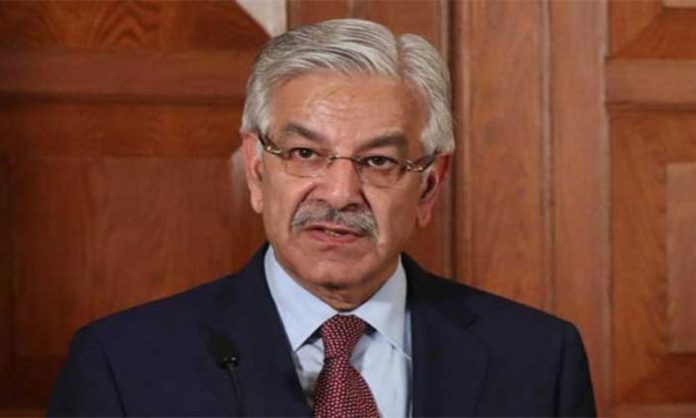DM Monitoring
Defence Minister Khawaja Asif has said that consultations were underway for amendments to the law that governs armed forces, as the government considers changes to the Constitution.
“Consultations on amending Article 243 are ongoing […] defence requirements have changed,” the minister told a private media channel during an interview on Wednesday in Islamabad.
The Constitution’s Article 243 states that “The Federal Government shall have control and command of the Armed Forces” and “the Supreme Command of the Armed Forces shall vest in the President”, among other things.
“This entire process will be carried out through mutual consultation,” said the defence minister, whose party, the Pakistan Muslim League-Nawaz (PML-N), attempts to amend the Constitution for the second time during its ongoing tenure.
Asif noted that consultations were ongoing with all political parties on the proposed amendment.
However, he declined to further comment on the potential tweak, saying that he “would not say anything until the amendment to Article 243 was finalised”.
The minister expected clarity on the consensus within the next two or three days, with the 27th Amendment likely to be presented to parliament next week.
His comments came after Prime Minister Shehbaz Sharif reportedly directed National Assembly Speaker Ayaz Sadiq to build consensus among political parties for the proposed amendment.
PML-N’s efforts to amend the law came to light on November 3, when Pakistan Peoples Party (PPP) Chairman Bilawal Bhutto-Zardari confirmed that the ruling party had sought their support in introducing the amendment.
Bilawal said that the proposed amendment, in addition to amending Article 243, included the establishment of a Constitutional Court and certain changes to the National Finance Commission Award.
A day later, Deputy Prime Minister and Foreign Minister Ishaq Dar said that the government was also working to take on board other allies, including Muttahida Qaumi Movement-Pakistan, the Awami National Party, and the Balochistan Awami Party.
Meanwhile, the defence minister said that proposals for the amendments also included the establishment of a separate Constitutional Court with representation from every province.
Asif said that Constitutional cases, though only 6%, took time due to their complex nature. The judges who hear daily cases also handle constitutional matters, he said, adding that improvements were being made through bench formation.
However, the Constitutional benches were being criticised as a “court without a court,” he said.
Asif noted that the Chief Election Commissioner’s appointment would be referred to “a third institution” in the event of a deadlock.
The defence czar warned of constitutional complications due to the delay in the Khyber Pakhtunkhwa Senate elections.
He, however, said that discussions were underway to ensure senators cover their terms and avoid constitutional complications.
The matter of judges’ transfers will be entrusted to the Judicial Commission, Asif added.
‘Delegation left for talks with Taliban regime’
Speaking to journalists outside the parliament, the defence minister said that a delegation has departed to resume talks with the Taliban regime’s delegation.
“Talks will begin tomorrow. Afghanistan should act wisely for peace in the region,” he said.
The second round of talks between Pakistan and the Afghan Taliban regime began on October 25 in Istanbul, Turkiye.
The talks collapsed after Pakistan refused to accept the Taliban delegation’s “illogical” arguments, and refusal to address Islamabad’s concerns regarding cross-border terrorism.
However, mediators persuaded Pakistan to give the talks another chance, which eventually resulted in an agreement on upholding the ceasefire.
“Further modalities of the implementation will be discussed and decided in a principal level meeting in Istanbul on 6 November 2025,” read a joint statement on the talks.
With the next round of talks scheduled to begin tomorrow (November 6), the defence minister said that Pakistan pursued the negotiations with a hope for further progress.
“If there is no possibility of progress, then it is just a waste of time,” he said.




